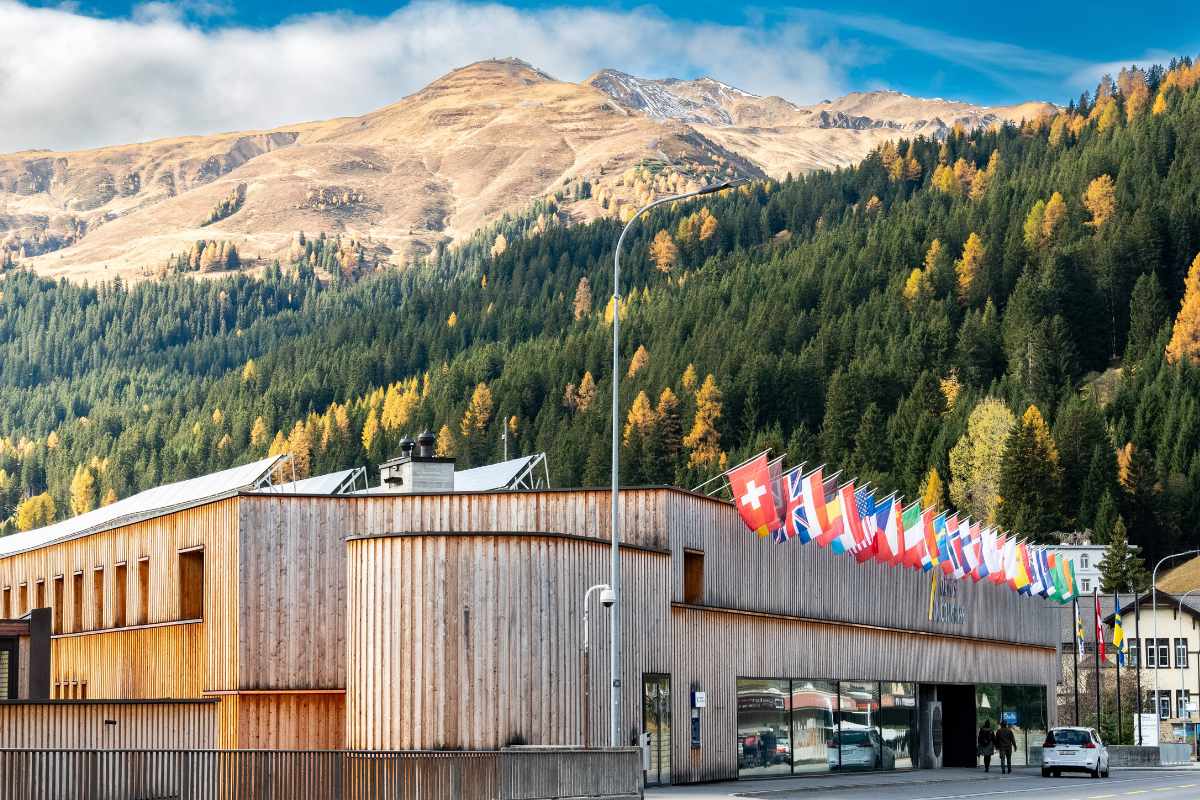From January 15 to 19, the scenic Swiss town of Davos will host the 54th Annual Meeting of the World Economic Forum (WEF). The event is also known as Davos 2024. It’s one of the most important platforms where the global elite in politics and business convene and address crucial topics.
This year’s theme is “Rebuilding Trust.” It’s a timely theme because over 1,400 experts in WEF’s newest report identify disinformation and conflicts as some of the top global risks. Keep reading to learn more about this event.
Four main areas
According to WEF, Davos 2024 “aims to restore collective agency and reinforce the fundamental principles of transparency, consistency and accountability among leaders.” Given the event’s all-encompassing goal and theme, WEF has organized the meeting around four key areas. Several keynotes are happening across five days under these pillars.
Achieving security and cooperation in a fractured world
Sven Smit states, “Geopolitics will be paramount, as will politics, in general, and the implications for business.” Smit is a senior partner at McKinsey and a delegate to this year’s WEF meeting.
WEF will hold keynotes and discussions in this program area, serving as a crucial platform for potential pathways toward stability and cooperation worldwide. The goal is to secure a win-win scenario for the different stakeholders involved. This cluster of activities harnesses WEF’s long-term engagement with governments and global organizations. Notable speakers include Bisher Hani Al Khasawneh, the prime minister of the Hashemite Kingdom of Jordan, and Sheikh Mohammed bin Abdulrahman Al-Thani, the prime minister and minister of Foreign Affairs of Qatar.
Creating growth and jobs for a new era
The world is being ushered into a new era. Today, geopolitical instability, climate challenges, and swift advancements in artificial intelligence (AI) all co-exist. In this era, a new economic model is emerging. And it focuses on preventing a period of low growth while putting people at the core of prosperous development.
To achieve this, the WEF argues that governments, businesses and community organizations must work together innovatively and more creatively. Through this specific program area, the Forum offers a unique platform — supported by collaborations with global economic bodies and leading academics — to discuss how the world can welcome a thriving economic future.
AI as a driving force for the economy and society
Exploring the use of AI to benefit everyone involves examining the varied regulatory landscapes that balance innovation with societal risks. Additionally, understanding the interaction of AI with other transformative technologies, such as 5/6G, quantum computing, and biotechnology, is crucial.
Under this specific theme, participants will delve into the swiftly growing importance of AI and how the world can approach the challenges and opportunities it brings. This pillar is anchored in Forum’s AI Governance Alliance, a WEF initiative that promotes AI development and application.
Read: WEF: Disinformation, environmental threats are world’s top risks

A long-term strategy for climate, nature and energy
Environmental and climate-related threats are among the biggest long-term risks that the world is collectively facing. Knowing how to develop a long-term systemic approach to achieve the objectives of a carbon-neutral and nature-positive world by 2050 is an essential subject of discussion. Along with that goal, the world must provide cost-effective, secure and inclusive access to vital resources, notably food, water and energy. The key is to balance trade-offs and reach a social consensus.
This program theme features other prominent Forum initiatives, such as the CEO Climate Leaders and the First Movers Coalition. The former is a CEO-led community that promotes net zero transition. Meanwhile, the latter is a coalition of leading companies starving to reduce greenhouse gas emissions in heavy industries and promote climate-friendly technologies.
High-profile attendees
Davos 2024 is set to host an impressive array of high-profile attendees. Over 300 public figures, including more than 60 heads of state and government, will participate, representing all key global regions. Prominent political leaders attending include Li Qiang, premier of China; Najib Mikati, president of the Council of Ministers of Lebanon; and Ursula von der Leyen, president of the European Commission, among others.
The event will also feature heads of major international organizations like António Guterres, secretary-general of the United Nations; Kristalina Georgieva, managing director of the International Monetary Fund; and Ajay S. Banga, president of the World Bank Group.
Meanwhile, over 1,600 business leaders will also be present, including 800 top CEOs and over 150 tech pioneers and innovators.
The event also welcomes over 200 members from its Global Shapers, Young Global Leaders, and Social Entrepreneurs communities. Moreover, around 200 experts from leading universities and think tanks and representatives from labor, non-government and religious organizations will also attend.
Public engagement
As a foremost forum where several figures converge, Davos 2024 is also intensifying its commitment to inclusivity and engagement. This year, it will offer over 200 live-streamed sessions for public access.
Now in its 21st year, the Open Forum will continue to engage the public with panel discussions. This time, it will focus on the theme “From Life to Lab: Science in Action,” providing a unique platform for discussions on significant scientific advancements.
Additionally, the Global Collaboration Village is pivotal in broadening public access and advancing global initiatives. This innovative feature aims to enhance global interaction and cooperation using state-of-the-art virtual technologies, foster empathy and awareness about global issues through immersive learning, enable broad participation from diverse stakeholders worldwide and catalyze individual and collective actions for tangible real-world impact. These elements showcase Davos 2024’s dedication to facilitating a comprehensive global dialogue on critical issues.
For more economic stories, click here.




